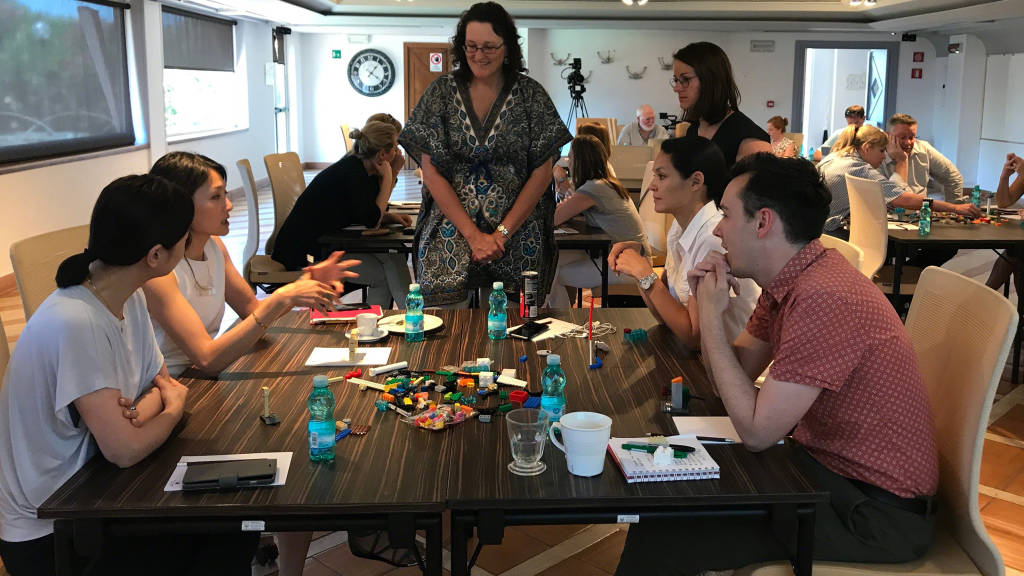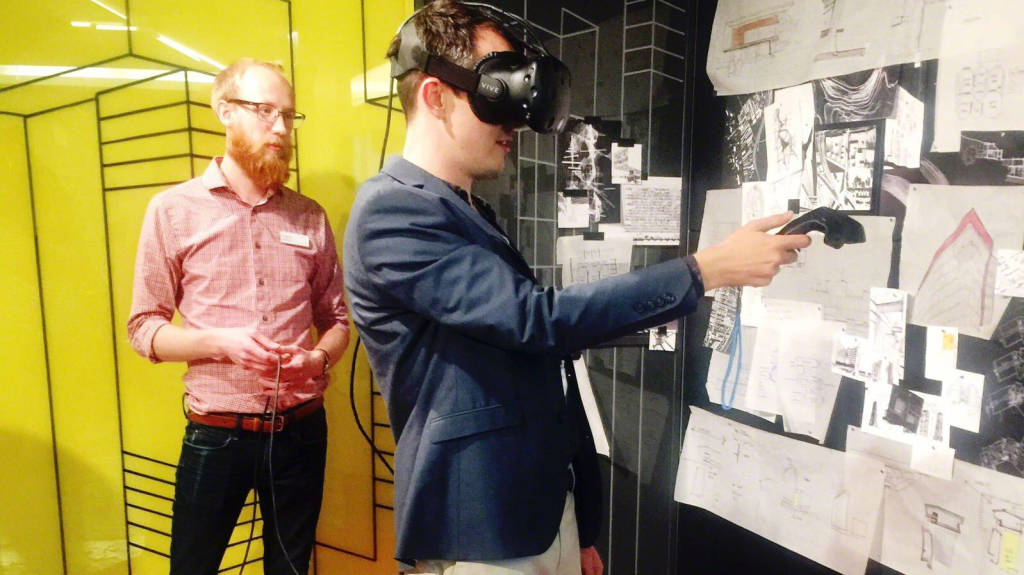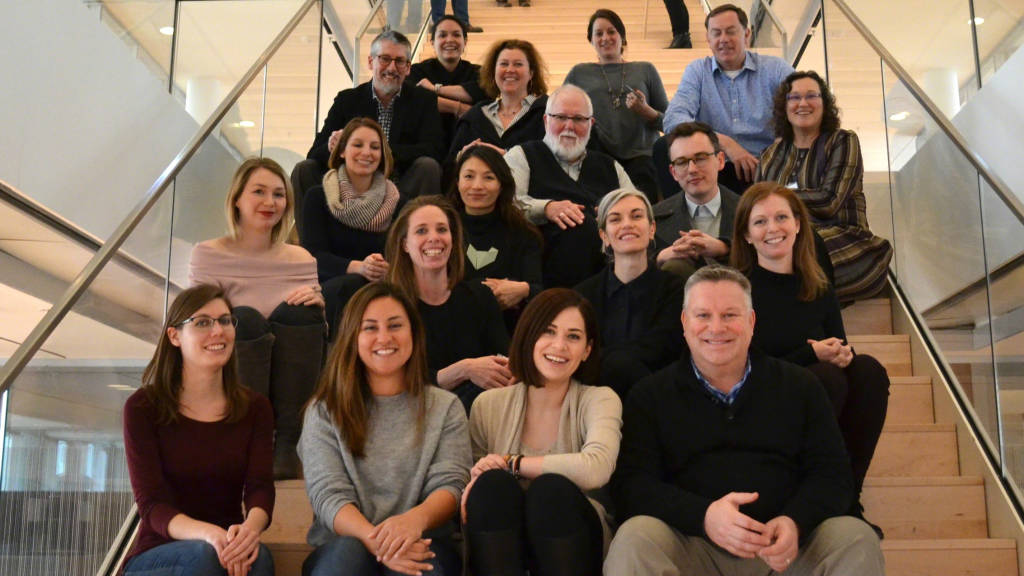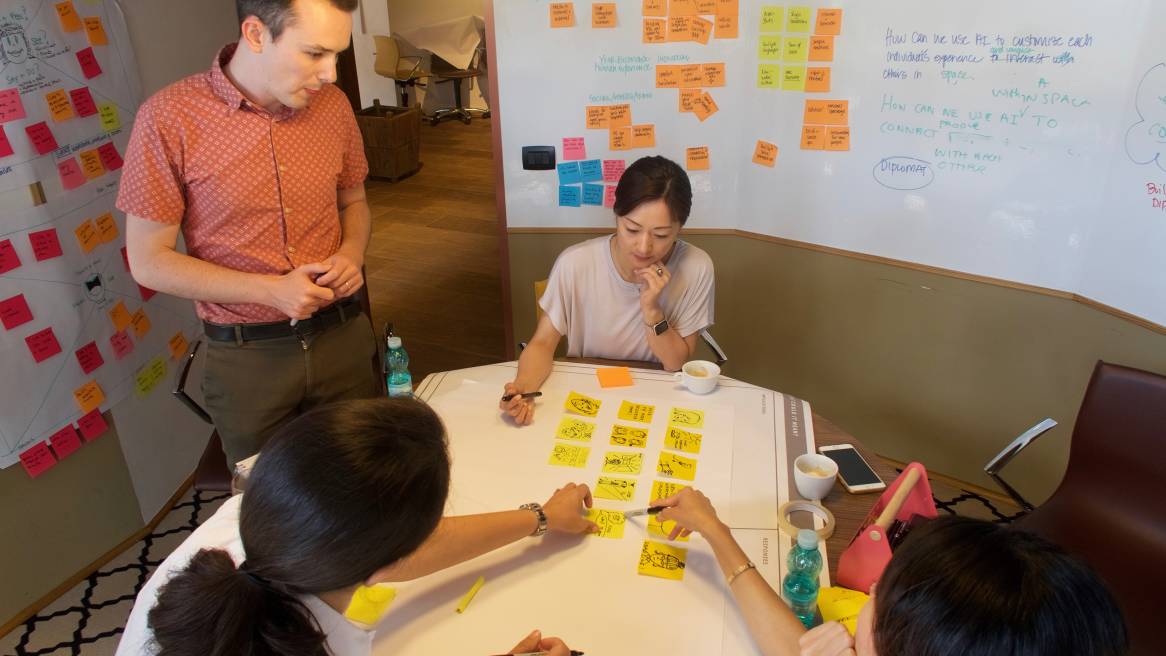How Will Artificial Intelligence Shape Our World?
The FORWARD Fellowship guides designers to explore the possibilities
The field of design is ever-evolving. Today, designers must address new client expectations and desires, all while integrating new technologies and producing creative outputs at swift speeds. The majority of technology influencing business in the next 5–10 years hasn’t hit the market yet, and if it has, little is known as to how deeply it will impact our lives. Artificial intelligence (AI) is the perfect example — it has immense potential to shift every industry but remains ambiguous for most. What will AI look like for design? How will it shape the environments we create, live in and work from? Gifted designers from across the globe have intriguing ideas.
“Design-thinking is where the future is going in business,” says Jerry Holmes, principal with Steelcase Design Alliances. Steelcase Design Alliance’s partnered with Steelcase researchers and Savannah College of Art and Design (SCAD) Design Management Program to create the FORWARD Fellowship. Tom Hardy, Design Management professor at SCAD, believes Steelcase and SCAD are great partners in this mission. “There is something about Steelcase and the people who work there. They have the insight to do this. We’ve been focusing since the first fellowship with Steelcase on the concept of design-thinking.”
In its second cohort term, the team invited a diverse group of designers from competing firms and various countries to participate in the global design-thinking fellowship aimed at providing the design community with new methods and ways of thinking to solve the complex challenges clients face today.
The Central Question
Each tasked with solving the central question — “How might we design environments that optimize the combined capabilities of people and machines?” — four teams worked throughout the year juggling time zones and full-time jobs to research, analyze and define solutions.
Each team viewed the central question with a lens that interested them. The lenses of discovery were:
- Reduce stress and anxiety in the workplace
- Promote a positive work experience through a focus on positive behaviors and wellbeing
- Enhance human connection in the workplace
- Add value to the student experience by using AI
A crash course in design-thinking

Starting off as strangers, the participants gathered for the first time last summer in Rome, Italy for a week akin to a design-thinking summer camp. Designers attended workshops co-designed and co-facilitated by SCAD’s Design Management Professors Tom Hardy and Bill Lee, and Steelcase researchers, Melanie Redman and Vanja Misic. The four leaders guided the fellows through the subjects of AI, emerging technologies and design-thinking research methods like scenario planning and the STEEP (social, technological, economic, environmental and political) framework. Once back home, fellows had access to Steelcase professionals across the organization to help them navigate questions and roadblocks.
The Future of AI

The innovative ideas the fellows developed on how to leverage AI highlight how deep and wide design-thinking guides research and solutions. Teams showcased how AI personas could work intuitively to turn on a social mode for email so people get the human connection we all need at work. AI could also signal the need for team meditation and infuse biophilic elements like plants into the office when workers are stressed and wellbeing is low.
AI can do more than make things easier and shift environments based on personal preferences. The future of artificial intelligence has the potential to remove cultural and socioeconomic barriers. Speaking different languages is no longer an issue with automatic translation. Learning environments in the future can reach anyone, anywhere with immersive campuses through contact lenses and connect students with tutors and professors worldwide based on interests and needs.
The fellows demonstrated the immense positive impact AI can have on the future. It can make the world more democratic and unbiased. It can help us become healthier, happier and capable of more connection and creativity.
Closing Ceremony
Gathered in Munich for the final week of the program, fellows visited the IBM Watson IoT Center to learn about IBM’s Augmented/Artificial Intelligence direction as well as how they are leveraging enterprise design-thinking in their business. Host, Dawn Ahukanna, along with Laura Dohle and John Vasquez guided the group. Both Ahukanna and Dohle attended the closing ceremony to hear the fellows’ final presentations and offered insightful feedback.
After final presentations, participants discussed the benefits of implementing what they learned at their individual firms. Julia Leahy noted that the STEEP framework helped her engage teammates. “I gathered a cross-disciplinary team, and we went through STEEP with post-it notes, asking, what are the drivers and coming up with imagery inspiration? It kicked the project off with really good team synergy and optimism.” James Merchant agreed, saying scenario planning, made a big impact on clients. “I’ve introduced scenario planning to my team. It gets people into the human experience, doing a storyboard and day-in-a-life scenarios. I really like doing it now with clients as well, taking them through the experience has made a huge difference.”
Redman highlights the benefit of the fellowship with, “The fellows are able to apply this process to their daily projects. It’s a chance for them to explore something completely different than what they regularly do and make new friends with people they would have never otherwise met.”
Holmes echoes Redman by emphasizing the takeaways of the program. “The richness of what we hope to accomplish is learning the skills of design-thinking. The design industry is under an assault of being commoditized. If you can elevate the game and approach critical problem solving in a different way, you have the potential to fend that off and have a new strategic approach.”

Fellows
- Aline Browers – HLM ARCHITECTS – Glasgow
- Christie Giemza – LITTLE – Raleigh
- Dewi Schönbeck – CSMM – Munich
- James Merchant – AECOM – Los Angeles
- Julia Leahy – IA – Boston
- Katie Lin – IA – London
- Laura Langlois – ARP ASTRANCE – Paris
- Lonneke Leijnse – HEYLIGERS – Amsterdam
- Yelena Mokritsky – HOK – NY


